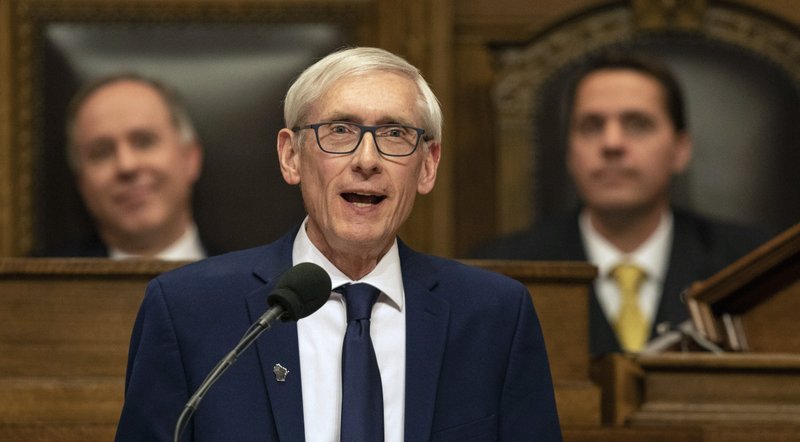Politics
Evers renewing call for Wisconsin Medicaid expansion opposed by GOP

MADISON, Wis. (AP) — Gov. Tony Evers will try again to expand Medicaid coverage in Wisconsin, announcing Wednesday that his state budget proposal will also have more than $150 million in other health initiatives, including bolstering student mental health support, addressing the opioid crisis and increasing telehealth accessibility.
“The COVID-19 pandemic has only further exacerbated the need for and underscored the urgency of making sure we have affordable, accessible services available to folks when they need it most, and that’s why it’s a top priority in our budget,” Evers said in a statement.
Evers previously called for expanding Medicaid in his 2019 budget, which the Republican-controlled Legislature rejected. It will likely face the same fate this year. Republicans argue that accepting the federal money to expand the state’s BadgerCare Medicaid program amounts to expanding welfare, with no guarantee the federal government will continue to reimburse the state at the same rate.
Accepting federal money available under the Affordable Care Act would increase the minimum income needed to quality from 100% of the federal poverty rate to 138%. That would increase the income eligibility for a single person from $12,880 a year to $17,774. That would make about 90,000 more people eligible for the program while saving about $643 million in state tax revenue due to the higher federal reimbursement, according to the governor’s office.
Wisconsin is one of only 12 states that has not accepted the expansion and is the only one that did a partial expansion without taking any federal money, according to the Kaiser Family Foundation.
Evers submits his two-year budget plan to the Legislature on Tuesday. He has been releasing parts of it in advance, including legalizing medical and recreational marijuana, lowering prescription drug costs, creating a $500 caregiver income tax credit and expanding programs to benefit agriculture and rural Wisconsin.
All of his proposals must win the approval of the Republican-controlled Legislature before becoming law. The Legislature will spend the next several months rewriting Evers’ budget before passing its own version in the summer, which Evers can reshape through his expansive veto powers.
Other funding proposals Evers announced Wednesday include:
— $40 million to increase Medicaid rates to bolster access to outpatient mental health services, including substance abuse treatment and psychiatric services for children and adolescents.
— $25 million for a variety of measures to combat the state’s opioid crisis, including expanding the BadgerCare Medicaid program to cover room and board costs for Wisconsin residents receiving treatment in residential substance use disorder treatment facilities. The money would also be used to allow for acupuncture and other alternative care methods to be covered under Medicaid; increase grants supporting needs of tribal communities and programs that provide needle exchanges, peer support and recovery coaches.
— $25 million for regional crisis centers and other preventative services.
— $54 million on student mental health and wellness through aid to public schools, grants, and other programming.
Carolyn Stanford Taylor, the state superintendent of schools, said that before the pandemic at least 20% of students faced a mental health issue and nearly 60% of high schoolers self-reported mental health needs. She said the funding was critical, especially as the needs of students have compounded during the pandemic as they have been in virtual learning, away from friends and with new stressors.







